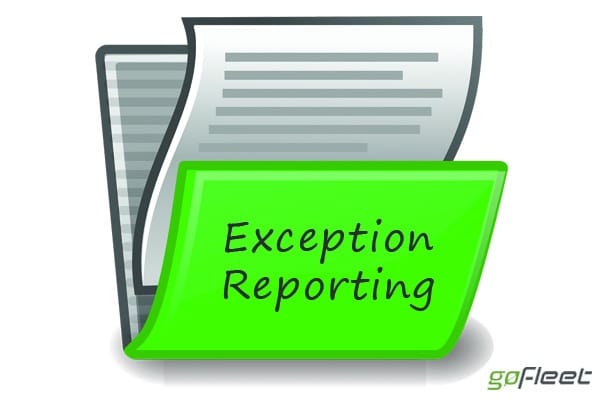Measure Fleet Standards with Exception Reporting
Generate reports based on Exception Rules
Understanding where and when an issue arises with your vehicle can be made simple by creating rules within your solution. Fleet managers are capable of setting specific fleet standards (rules) within the database, these standards can then act as a benchmark to effectively manage and improve on road driver behaviours. Therefore, when a vehicle event occurs around the rule set, an exception is recorded which can then optionally notify one or more people, alert the responsible driver in their vehicle, or easily log the event in your account.
Our solution offers a robust suite of built in exception rules separated into easy to understand categories. In addition to these, you can create an unlimited number of custom rules which combine different various conditions to suit your needs.
The types of built in exceptions offered are available in three categories:
Safety:
Enables fleet wide safety, driver safety, and changes to driver behavior which increases accident risk such as harsh braking, seat belt use, speed violations, accident detection and more.
Productivity:
Driver measurements related to time spent performing specific actions such as excessive idling, late arrivals, early departures and more.
Fleet:
Responsive vehicle monitoring Engine issues, battery drain, tracking device tamper detection and more.
Generating Exception Reports
Exception rules can also be accessed within the database by running reports at any time to review the history of exceptions and to understand the trending behaviors of your drivers. In other words a report based solely on speeding can be generated if requested by management within a specific time period. This report will contain information of the incident, the time period and the date of the incident.
The importance of generating such reports are limitless. It can act a benchmark for decision making, help understand how your drivers are performing through data analysis and implement strategies using numbers gained from the report. As drivers often do not see the expenditure side of running a business causing them to make hasty decisions while on the road. Therefore, the whole idea of setting rules within the solution identify who those drivers are and what what hasty decisions are being made.
Exception Reporting
Along with the default reports already available, advanced reports containing more information can be downloaded. Downloading an Excel file allows for the most flexibility in analyzing the data, while PDF files are most portable. These reports also contain more information as displayed and can help fleet managers review data/driver behaviours based on such rules.
For more information on the important features of GPS fleet tracking, and how it could help your business save thousands of dollars, contact one of our highly trained fleet consultants today!
1-888-998-1122 | [email protected]
